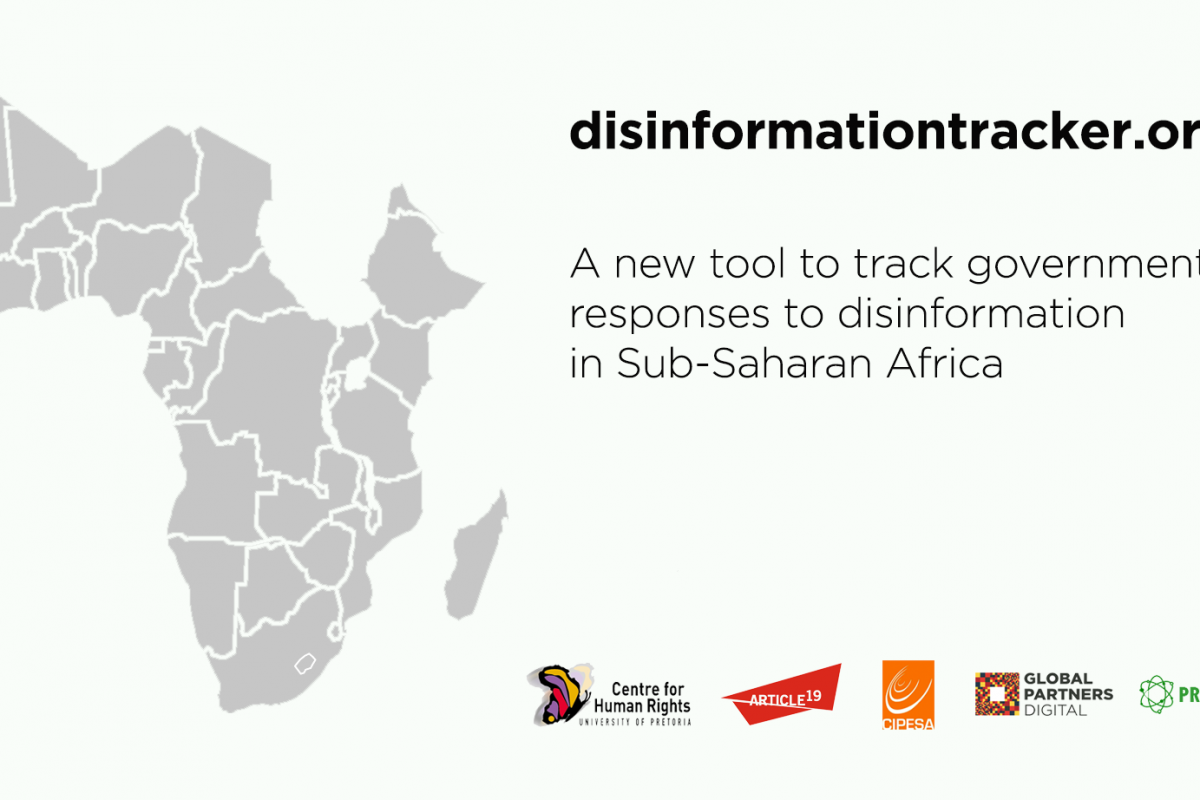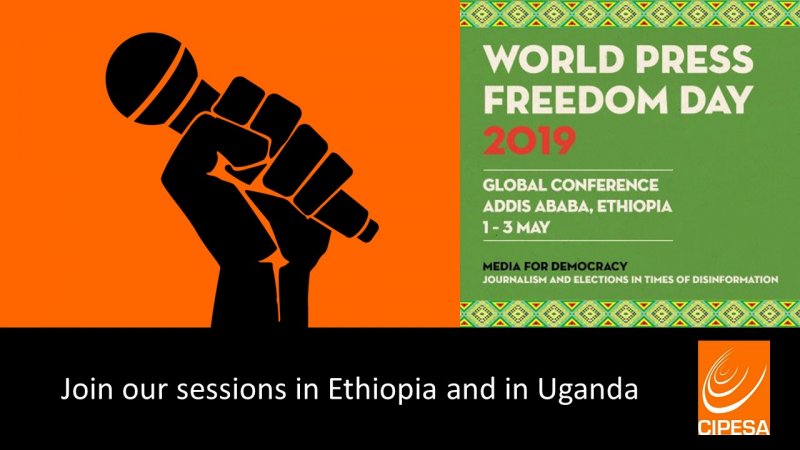Par Richard Ngamita |
Le phénomène de la désinformation sur les médias sociaux est devenu une source de préoccupation croissante dans la politique mondiale depuis plusieurs années. Bien plus, ledit phénomène explose maintenant en Afrique subsaharienne, où les campagnes de désinformation via les médias sociaux sont de plus en plus déployées par des entités et des gouvernements étrangers pour influencer l’opinion.
Plusieurs facteurs sociopolitiques et économiques offrent un terrain propice à la désinformation dans les pays africains. L’explosion démographique avec prédominance de jeunes – dont la plupart se connectent à l’Internet pour la première fois via les médias sociaux, la disponibilité et l’utilisation croissantes des téléphones portables connectés à Internet, les conflits ethnico-religieux et l’insécurité sont quelques-uns des facteurs qui ont contribué à la prolifération d’informations accessibles via les médias numériques, fournissant ainsi de nouveaux canaux de diffusion rapide et d’amplification de fausses informations.
Cette montée de la désinformation dans la région constitue un nouveau test de solidité pour les nouvelles dispositions politiques et législatives en matière d’Internet. Par exemple, en mars 2020, l’Éthiopie a promulgué la loi sur la prévention et la répression du discours de haine et de la désinformation, pour lutter contre ces deux phénomènes qui ont troublé le pays par le passé. Cependant, il s’avère selon plusieurs observateurs que cette nouvelle réglementation gouvernementale, bien que légitime pour lutter contre le discours de haine, constitue en même temps une menace pour la liberté d’expression et l’accès à l’information en ligne.
Au Cameroun, en vertu de la loi relative à la cybersécurité et à la cybercriminalité, la publication et la propagation d’information en ligne “sans pouvoir en attester la véracité” ou justifier qu’il y avait de bonnes raisons de croire en ladite information est correcte constituent un délit. Lors d’une conférence de presse tenue en juillet 2020, René Emmanuel Sadi, ministre camerounais de la communication, s’est dit préoccupé par l’utilisation “irresponsable” des médias sociaux pour ternir l’image des fonctionnaires ou saboter les actions du gouvernement et a prévenu que ceux qui continueraient à propager de telles informations sur les plateformes de médias sociaux s’exposeraient à de lourdes peines prévues par la loi.
D’autres pays comme le Zimbabwe et la Tanzanie, disposent de lois plus générales sur les médias qui ont été utilisées pour lutter contre les fausses informations. Ces différentes lois ont été critiquées pour la menace qu’elles font peser sur les droits numériques, en particulier lorsqu’elles sont mises en place pour contrer toute opinion critique ou débat contradictoire dans des pays africains présentant des déficits démocratiques.
De nombreux pays africains, dont le Cameroun et la République Démocratique du Congo (RDC), continuent de se débattre contre la désinformation, par laquelle une mauvaise action en ligne pourrait causer des dommages hors ligne. Ce rapport examine la situation dans ces pays, où – malgré des niveaux de connectivité relativement bas – la désinformation représente une préoccupation considérable.
En 2017, le Cameroun comptait 19,7 millions d’abonnés à la téléphonie mobile, soit un taux de pénétration de 85 %, tandis que la pénétration d’Internet était de 35,6 %. Parallèlement, la RD Congo avait un taux de pénétration d’Internet de 19,2 % en décembre 2019, tandis que le taux de pénétration de la téléphonie mobile était de 42 %.
Compréhension des conflits et désinformation
Les citoyens du Cameroun et de la RD Congo recourent à une gamme variée de sources d’information traditionnelles (notamment la presse écrite et audiovisuelle), ainsi qu’à des sources en ligne pour suivre l’actualité sociale, économique et politique. Cependant, les médias sociaux jouent un rôle de plus en plus important comme source d’informations relatives aux conflits, par le fait que les médias traditionnels sont censurés par les gouvernements respectifs.
Au Cameroun, les tensions entre les régions anglophones et francophones remontent à l’indépendance du pays en 1961. Au fil des ans, des violences mortelles et des actions de protestation ont eu lieu contre la “francophonisation” continue et la marginalisation des anglophones qui affirment que le gouvernement central privilégie la population francophone majoritaire.
En 2015, une vidéo montrant deux femmes et deux enfants abattus par des soldats dans la ville de Zelevet, dans l’extrême-Nord, a commencé à circuler sur les médias sociaux. Selon une enquête de BBC Africa Eye de juillet 2018, le gouvernement a d’abord rejeté la vidéo la qualifiant de fausse nouvelle. Cependant, Amnesty International a révélé avec des preuves crédibles que l’armée camerounaise était responsable, ce qui a poussé les autorités à se rétracter et à déclarer que les 10 soldats représentés dans la vidéo avaient été arrêtés et seraient poursuivis. Cinq ans après l’incident, un tribunal militaire a déclaré les soldats coupables et les a condamnés à des peines d’emprisonnement.
Alors que l’enquête de BBC Africa Eye sur l’incident de la fusillade a révélé que plusieurs personnes n’aimaient pas diffuser en ligne des discours de haine et des contenus graphiques sur les violences, elles reconnaissaient que ces contenus pourraient parfois révéler des informations utiles à la sécurité en particulier pour ceux qui vivent dans des zones de conflit.

Source: Twitter
En RD Congo, la succession de conflits armés a fait des millions de morts et déstabilisé le pays, avec une violence continue perpétrée par plusieurs groupes armés actifs dans la région, notamment les forces démocratiques alliées (ADF : Allied Democratic Forces), les Forces Démocratiques pour la Libération du Rwanda (FDLR) et de nombreuses autres milices. La Mission de l’Organisation des Nations Unies pour la Stabilisation en RD Congo (MONUSCO) opère dans la région depuis 1999 et constitue la plus grande mission de maintien de la paix des Nations Unies dans le monde.
Lors des élections tant attendues de 2018, des irrégularités électorales généralisées ont été signalées, des partis politiques concurrents prétendaient être en tête après que les résultats de divers comptages non officiels aient commencé à circuler sur les médias sociaux. Des contenus sponsorisés produits sur Google et sur Facebook ont faussement prétendu qu’Emmanuel Ramazani Shadary, dauphin du président sortant Joseph Kabila, avait remporté le scrutin. Ces annonces ont été publiées avant la proclamation officielle des résultats par la commission électorale, arrivée tardivement. Il y a eu des coupures d’Internet dans les principales villes du pays, ce qui a davantage compliqué la vérification de toute information en rapport avec ces élections.

Source : Twitter
Sachant que les élections avaient été reportées de novembre 2016 à décembre 2017, puis à avril 2018, la propagation de faux résultats électoraux aurait pu prolonger le cycle d’instabilité.
Le rôle de la diaspora
La communauté de la diaspora contribue énormément à attiser les tensions en ligne dans les deux pays, souvent par le biais de faux comptes qui partagent régulièrement des contenus haineux incitant à la violence contre des factions politiques rivales.
Lors des élections de 2018 au Cameroun, il y a eu plusieurs cas de publications sur les médias sociaux en provenance de la diaspora affirmant que le président de longue date Paul Biya était mort. Biya a finalement gagné lesdites élections et deux ans plus tard, le contenu des médias sociaux, souvent en provenance de la diaspora, continue d’alimenter les tensions politiques et ethniques.

Source: Facebook
Avec le conflit dans les régions anglophones qui provoque des appels à un État indépendant, et les séparatistes qui recherchent activement le soutien de la diaspora camerounaise, il y a un risque permanent que le contenu en ligne qualifiant le gouvernement camerounais de répressif et violent puisse entraîner des dommages hors ligne.

Source: Facebook
Quant aux messages mensongers sur les médias sociaux qui affirmaient que Shadary avait remporté l’élection présidentielle de 2018 en RD Congo, et compte tenu de la coupure de l’Internet à l’époque, tous les indices montrent que les auteurs des annonces sponsorisées et les administrateurs des comptes en question étaient des membres de la diaspora. Le compte Lumumba aime LE CONGO qui figurait parmi les principaux propagateurs des annonces, avait été créé juste avant les élections et misait sur l’héritage de Patrice Lumumba, célèbre héros de l’Indépendance. Outre le contenu revendiquant la victoire de Shadary, la page partageait également des messages provenant de plusieurs faux domaines ou sites web d’agrégation d’informations comme CongoActu24.com. Ceci constitue un autre exemple frappant de désinformation en ligne susceptible de causer des dommages hors ligne dans un environnement politique fragile.

Pandémies
À l’instar d’autres pays africains, le Cameroun et la RD Congo ont connu une recrudescence de la désinformation en ligne à propos du Covid-19, en partie liée aux sensibilités culturelles, politiques et religieuses, notamment la promotion de remèdes à base de plantes, de bains de vapeur, de l’alcool, de commentaires contradictoires et spéculatifs sur les traitements et/ou de conseils confus sur les Procédures Opérationnelles Normalisées (PON).
La propagation de la désinformation autour des maladies peut constituer un danger pour la santé publique, comme cela a été le cas au Cameroun et en RD Congo concernant Ebola et, plus récemment, le Covid-19. La désinformation sur les maladies cultive la méfiance par rapport aux données scientifiques, freine la sensibilisation, politise les actions de santé publique et sème le doute sur les motivations des autorités sanitaires.
La RD Congo n’est pas novice en matière d’épidémie, puisqu’elle a subi de plein fouet l’épidémie d’Ebola entre 2017 et 2019. En mai 2020, France 24 News a fait état d’une campagne de désinformation sur le Covid-19 en RD Congo. Les rapports de France 24 ont ensuite été corroborés par Facebook et le DFRLab, qui ont trouvé un lien entre le réseau avec un homme politique appelé Honoré Mvula. Le réseau a diffusé plusieurs propos sur le Covid-19 faussement attribuées à des personnalités publiques, notamment à l’expert français en maladies infectieuses Didier Raoult, au président français Emmanuel Macron et au président malgache Andry Rajoelina. Ces allégations ont fait le tour des pages Facebook très suivies en RD Congo. Mvula a nié les accusations portées contre lui. Facebook a dû supprimer lesdites pages.

Coupures d’Internet
Le Cameroun et la RD Congo ont l’habitude d’ordonner des coupures d’accès à l’Internet à de multiples occasions lors de protestations publiques et d’élections. En janvier 2017, la connectivité à Internet a été coupée dans la région anglophone du Cameroun suite à des appels à sa sécession de la région francophone. Cette interruption qui a duré plus de 230 jours jusqu’en mars 2018, est connue comme la plus longue coupure d’Internet sur le continent.
De la même manière, l’instabilité en RD Congo a été continuellement caractérisée par des coupures répétitives d’Internet depuis décembre 2011. Après la journée électorale relativement calme du 30 décembre 2018, le gouvernement a coupé l’accès à Internet le 31 décembre, puis a progressivement fermé les médias audiovisuels, tout en expulsant certains journalistes internationaux qui couvraient les élections. Les raisons officielles fournies par les responsables politiques étaient “afin d’éviter la diffusion de faux résultats”.
D’après des analystes, la coupure d’Internet au Cameroun a coûté à l’économie 1,67 million de dollars par jour, tandis que celle de la RD Congo coutait 3 millions de dollars par jour.

Source: Twitter
Les coupures d’Internet pendant les élections sont une tendance courante et croissante de la répression numérique, en particulier dans les pays autoritaires d’Afrique, dont les dirigeants sont au pouvoir depuis de nombreuses années. Lorsque les gouvernements imposent des blackouts médiatiques ou restreignent la libre circulation de l’information en ligne par d’autres moyens, la désinformation se développe car la vérification des faits et le débat contradictoire sont entravés. Dans le cas du Cameroun et de la RD Congo, cette désinformation, provenait en grande partie de la diaspora qui propageait un discours de haine et de fausses informations risquant d’exacerber les conflits civils et de compromettre l’intégrité électorale. À leur tour, les coupures d’accès à Internet et la désinformation propagées par des acteurs étatiques et non étatiques érodent le potentiel de la technologie pour améliorer l’intégrité électorale, l’engagement civique et la lutte contre des maladies telles que le Covid-19.

Source: Twitter
Venir à bout de la désinformation
La création de comptes de messagerie visant uniquement les périodes électorales est devenue monnaie courante, et ils sont particulièrement inquiétants du fait que leur contenu est souvent mensonger, carrément faux ou incitatif. Cette récente émergence de campagnes en ligne via les plateformes de médias sociaux a donc soulevé d’autres préoccupations quant à la manière dont les données requises sont obtenues, au niveau de vulnérabilité des démocraties africaines face à l’ingérence étrangère, à la façon dont les algorithmes des médias sociaux sont enclins à la manipulation, et à l’éthique du fait que des pays africains soient utilisés comme terrain d’essai pour de nouvelles technologies numériques.
Alors que les efforts visant à légiférer contre la désinformation deviennent des points de pression sur les droits humains, des mesures alternatives prises en collaboration avec les opérateurs de plateformes de médias sociaux s’avèrent prometteuses. En 2020, plusieurs gouvernements d’Afrique subsaharienne ont établi des partenariats avec des plateformes de médias sociaux et d’autres intermédiaires pour lutter contre la désinformation en rapport avec le Covid-19. Plus tôt en 2018, le Cameroun a directement travaillé avec Facebook pour explorer les moyens de lutte contre la diffusion d’informations fausses et mensongères dans le pays. Entre-temps, la promotion du renforcement des capacités dans le domaine de l’utilisation du numérique et de la capacité de vérification des faits, ainsi que la sensibilisation sur ce qui constitue un contenu inacceptable sur les plateformes et à la manière de signaler un contenu répréhensible, restent des actions clés nécessaires. Par conséquent, les efforts et les autres mesures pour lutter contre la désinformation et autres contenus préjudiciables, notamment durant les périodes électorales et la lutte contre le Covid-19, nécessitent une collaboration plus étroite par rapport à celle dont nous avons été témoins jusqu’ici, entre les gouvernements, la société civile et les plateformes.
Richard Ngamita est un chercheur dans le domaine du traitement de données qui travaille actuellement sur les droits de l’homme, la désinformation et l’espionnage. Il a précédemment travaillé chez Google au sein de l’équipe contre les pourriels. Il a également mené des recherches d’investigation dans le domaine de la santé, l’agriculture et les mouvements de réfugiés.











